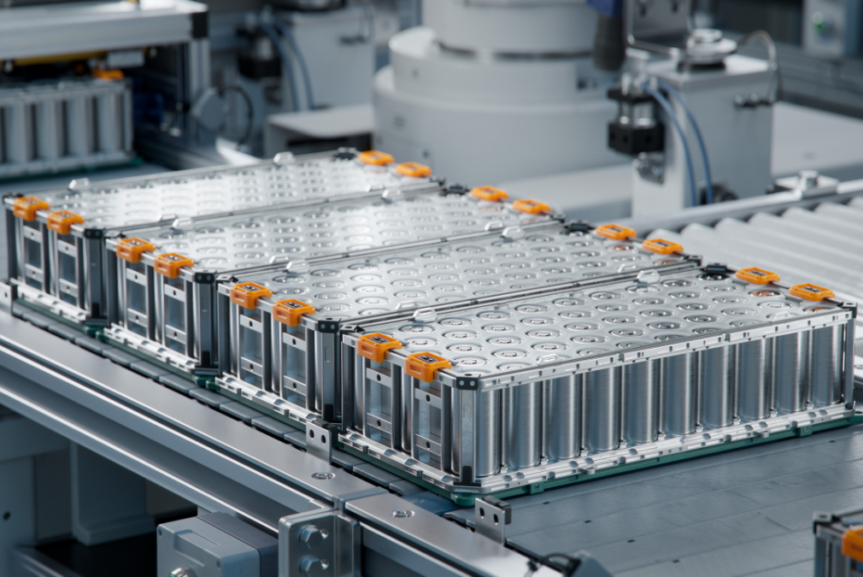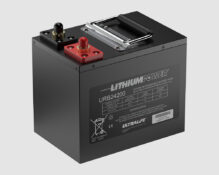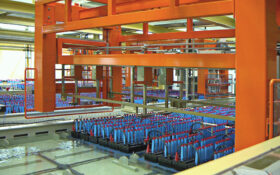The latest developments in the rapidly evolving world of lead-based batteries will come under the spotlight when the 14th European Lead Battery Conference and Exhibition (14ELBC) takes place in Edinburgh, Scotland, on 9-12 September.
Organised by the International Lead Association (ILA), ELBC aims to cover all aspects of the lead-based battery industry, whether research, manufacturing, development or marketing, and to the many organisations which supply equipment and components to the industry, as well as those working in academia researching future processes and products. This year, the 14th event, in the well-established series comes to the United Kingdom for the first time.
In the opening session at the Edinburgh International Conference Centre on the morning of 10 September, delegates will hear about the challenges of combatting future climate change, from Dr Julian Allwood, one of the authors of the latest report of the Intergovernmental Panel on Climate Change (IPPC).
Among its many observations the IPPC has highlighted the importance of radically increasing the proportion of energy generated from renewable sources. In response Dr Pat Moseley, President Emeritus of the Advanced Lead Acid Battery Consortium, will explain why lead-based batteries provide a cost-effective means of energy storage to meet this goal.
One of the most significant developments charted over the last couple of ELBCs has been the increase in the number of new vehicles fitted with start-stop and other energy saving functions. Introduced in Germany in 2009, using lead-acid batteries specifically designed to meet this more arduous duty, significant reductions in fuel consumption and emissions are possible.
In Edinburgh, two sessions will be devoted to design aspects and performance characteristics of automotive batteries for low emission vehicles, and the current status and most recent progress in this field will be presented.
Test procedures, both long-term during life cycling and short-term as part of initial performance characterisation, will be examined, and news will be presented on progress towards the standardisation of requirements for micro-hybrid batteries. Several papers will examine the relative performance of different types of lead-acid and lead-carbon batteries, and projects involving the use of such batteries in demonstration vehicles will be presented.
But of course, it is not just road vehicles that benefit from the unique advantages conferred by advanced lead-acid and lead-carbon batteries. Large-scale energy storage, particularly in association with renewable energy storage represents a growing need around the world, and lead batteries can provide one of the solutions.
Accordingly, a session at 14ELBC will be devoted to the role that lead batteries can play in energy storage for future electricity networks. During this session a series of papers will review some of the rapidly growing numbers of lead battery energy storage systems now in operation around the world. Examples presented will range from the household level to the community level, and will range across lead battery technologies (VRLA, Ultrabattery and Axion PbC). The papers also describe a wide range of functionalities that can be incorporated into such systems, including power conversion, load management, frequency regulation, as well as “smart grid” application.
A key objective of the ELBCs is to showcase previously unpublished research studies into new materials, designs and fundamental behaviour of lead-acid batteries, in the firm belief that these activities and their promotion will ensure that the lead-acid battery will meet future challenges, both in the short and longer term.
At 14ELBC, two sessions will be devoted to new research results, with one of them focused exclusively on today’s hottest topic in lead-acid technology – namely the basic science behind the remarkable improvements in performance resulting from the incorporation of various types of carbon into the negative active mass of batteries.
As usual 14ELBC will include a special session at which component, material and machinery suppliers can present their latest developments, providing an excellent opportunity for plant and design engineers to review all available options. This session will complement a large exhibition at which 100 suppliers will present their products and services.
Following the success of a workshop on dynamic charge acceptance at 13ELBC in Paris, a further workshop will take place at 14ELBC on the development of lead-acid batteries for existing and new applications under the theme of ‘Leaner and Fitter’ on Tuesday, 9 September.
Particular emphasis will be placed on opportunities for improving scientific energy and specific power without compromising durability, and on the optimisation of key performance characteristics for particular applications. Introductory presentations will cover battery design issues, current collectors, additives, and manufacturing technology and it is planned that the discussion will be free-ranging.
Also on 9 September delegates have the opportunity to tour Entek International’s multi-award winning battery separator plant in Newcastle, which is currently celebrating 25 years service to the lead-acid battery industry. Delegates are also invited to join a tour to the Scottish Museum of Lead Mining at Wanlockhead, Lanarkshire on Tuesday, 9 September.
With an anticipated attendance of close to 700 delegates and with over 60 presentations on technological developments, new manufacturing processes and applications, together with 100 trade stands in the exhibition, 14ELBC will continue to provide the lead-acid battery community with a prime opportunity to meet, learn, do business and have fun, all at the same venue.












